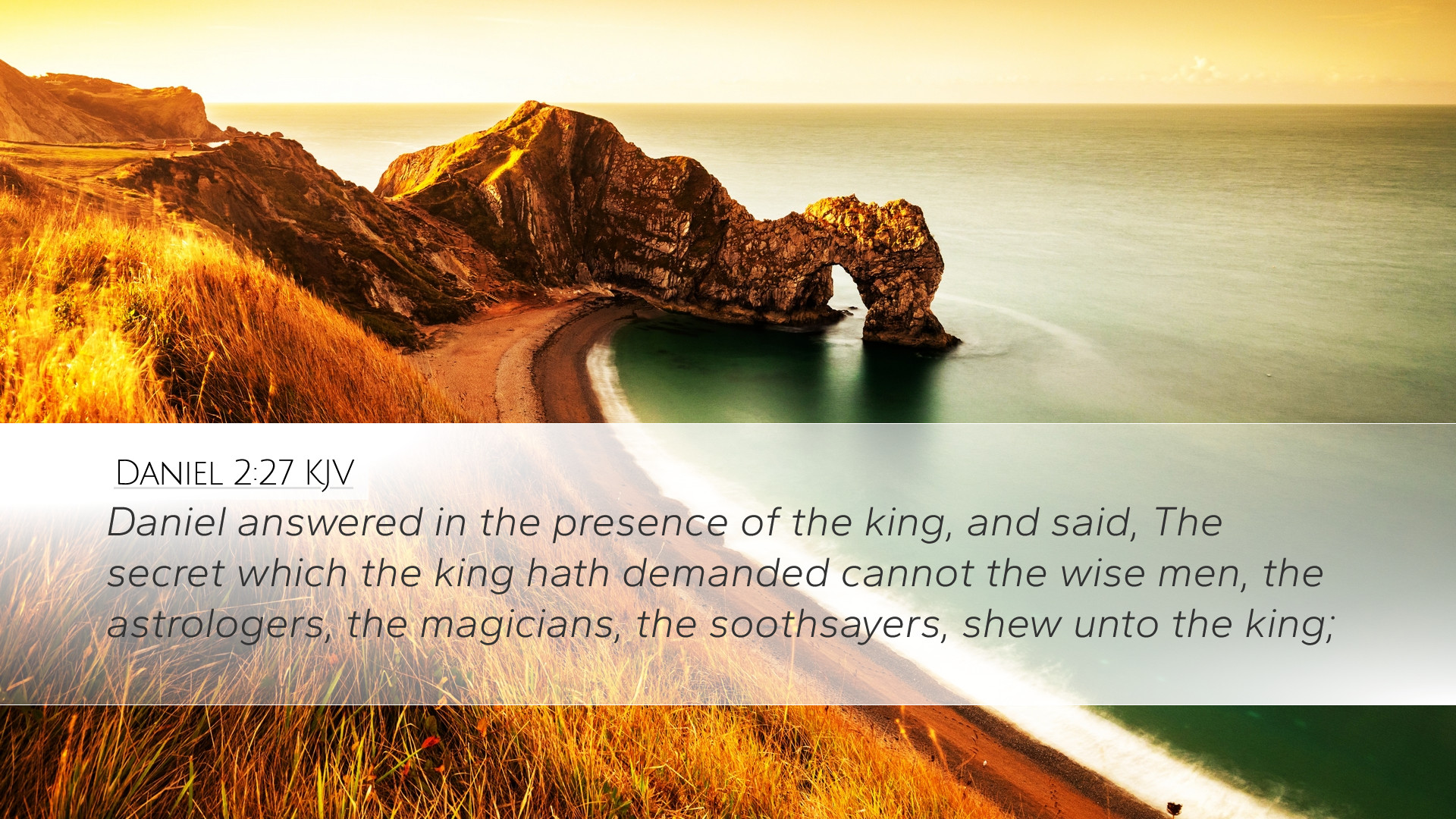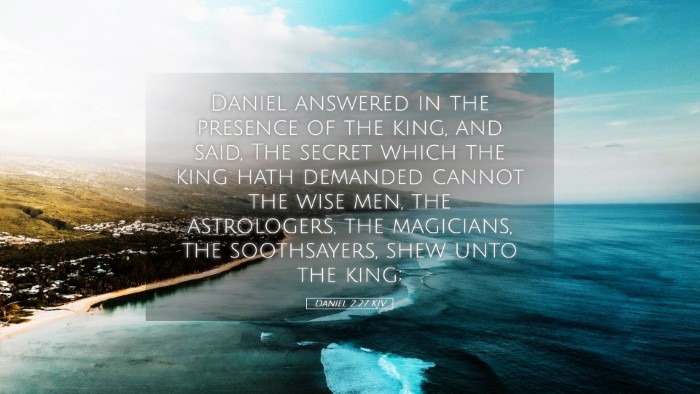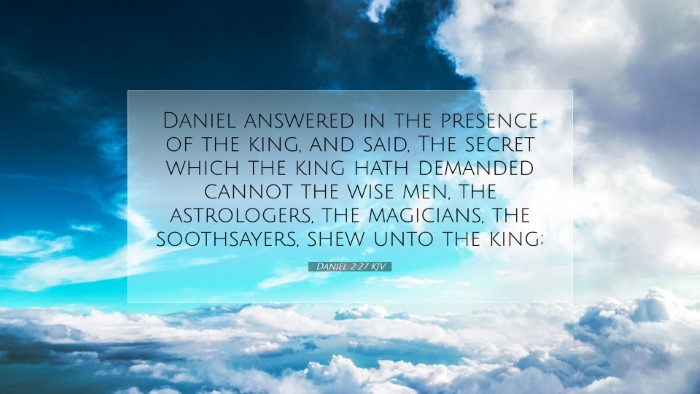Commentary on Daniel 2:27
Verse Text: "Daniel answered in the presence of the king, and said, The secret which the king hath demanded cannot the wise men, the astrologers, the magicians, the soothsayers, show unto the king;" (Daniel 2:27, KJV)
Introduction
This verse is pivotal within chapter two of Daniel, where the groundwork is laid for understanding the limitations of human wisdom in the face of divine knowledge. Several public domain commentaries, including those of Matthew Henry, Albert Barnes, and Adam Clarke, provide insight into this profound assertion made by Daniel when confronted by King Nebuchadnezzar's edict regarding the interpretation of his troubling dream.
The Context
To fully grasp the meaning of Daniel 2:27, it is imperative to consider the broader context of the narrative. Nebuchadnezzar, troubled by a dream he had, called upon his wise men, astrologers, magicians, and soothsayers to reveal both the dream and its interpretation. When they failed to meet his demands, Daniel, a captive from Judah yet endowed with wisdom and insight, was brought before the king.
Limitations of Human Wisdom
Henry notes that Daniel's response underscores the inadequacy of human wisdom and the limitations of the occult practices popular in Babylon. Despite the reputation and learnedness of these wise men, they are ultimately powerless to unveil the mysteries that lie before the king. This sharp contrast emphasizes that true understanding comes not from human intellect but from divine revelation.
The Role of Divine Revelation
Albert Barnes further highlights that Daniel's assertion points to a crucial theological truth: it is God alone who reveals secrets and interprets dreams. This acknowledgment serves as a reminder of God's sovereignty over all nations and kingdoms. The wise men represent human efforts to gain knowledge without dependence on God, which proves futile.
Specific Insights from Commentators
-
Matthew Henry:
Henry emphasizes that when Daniel declares that the wise men cannot reveal the mystery, it is not merely a statement of their inability but serves to magnify the wisdom of God who does reveal truth. Daniel's wise and humble approach contrasts with the pride of the Babylonian magicians, establishing a theme of divine grace versus human pride.
-
Albert Barnes:
Barnes notes that Daniel's declaration acts as a prelude to the subsequent revelation of both the dream and its interpretation. This moment is critical as it sets the stage for enabling the king to see that the God of Daniel possesses knowledge that transcends all earthly wisdom. Hence, Daniel is positioned as a prophet, an intermediary revealing God's will.
-
Adam Clarke:
Clarke adds depth by explaining that the declaration of inability is indicative of a significant theological truth about the nature of divine wisdom versus human folly. He insists that Daniel’s response leads Nebuchadnezzar to recognize the superiority of the God of Israel over the Babylonian deities, fostering a realization of the limitlessness of divine capability amidst human incompetence.
Lessons for Modern Application
This commentary on Daniel 2:27 elicits essential reflections for today's pastors, students, theologians, and Bible scholars:
-
Dependence on God:
In a world increasingly reliant on human intellect and science, this passage calls believers back to the necessity of divine revelation. It stresses the need for prayer and humility before God to receive wisdom and insight.
-
The Role of the Prophet:
Daniel's role as a prophet reminds us of the importance of God's messengers in interpreting His will and purposes. There is a call to faithful stewardship of the message entrusted to us by God.
-
The Superiority of Divine Wisdom:
As the wise men of Babylon faltered, so too do secular wisdom and philosophies fail to provide ultimate answers to the questions of life. The passage invites examination of current ideologies in contrast to the truths revealed in Scripture.
Conclusion
Daniel 2:27 serves as a poignant reminder of the essential dependence on divine revelation in human affairs. Commentaries from Matthew Henry, Albert Barnes, and Adam Clarke converge on the idea that while human efforts may culminate in failure, reliance on God guarantees access to understanding the mysteries of life and the workings of the divine. This verse invites every believer to look beyond human resources and to seek God's illuminated wisdom in all matters.


